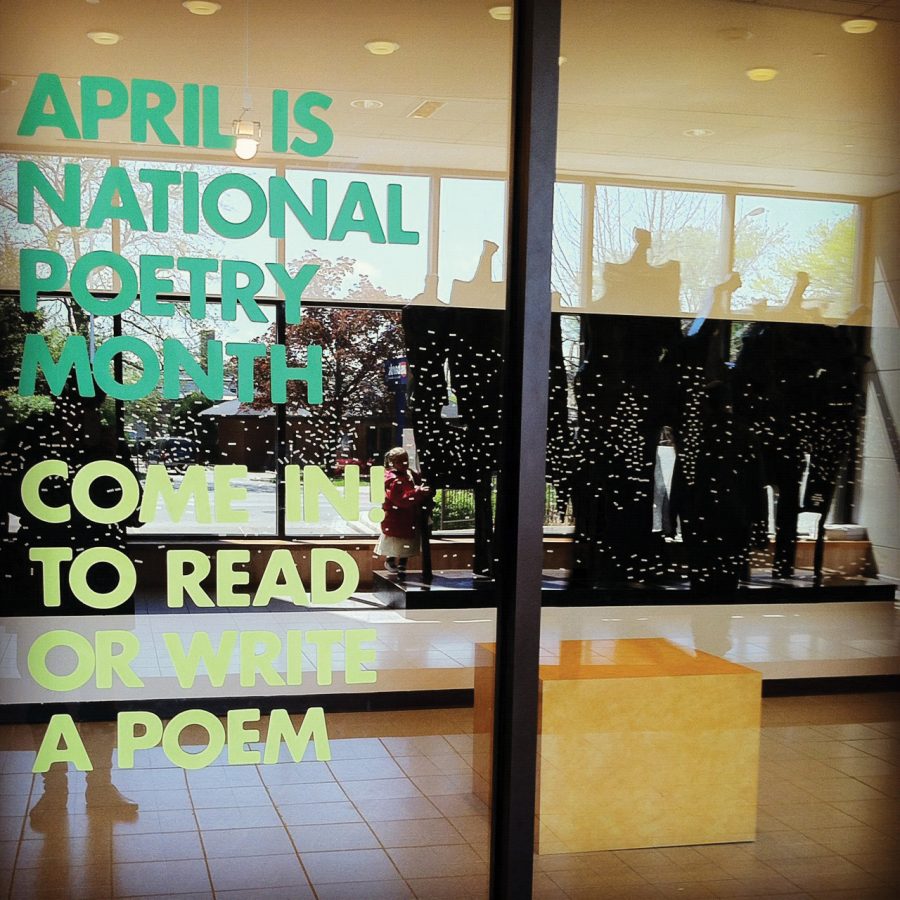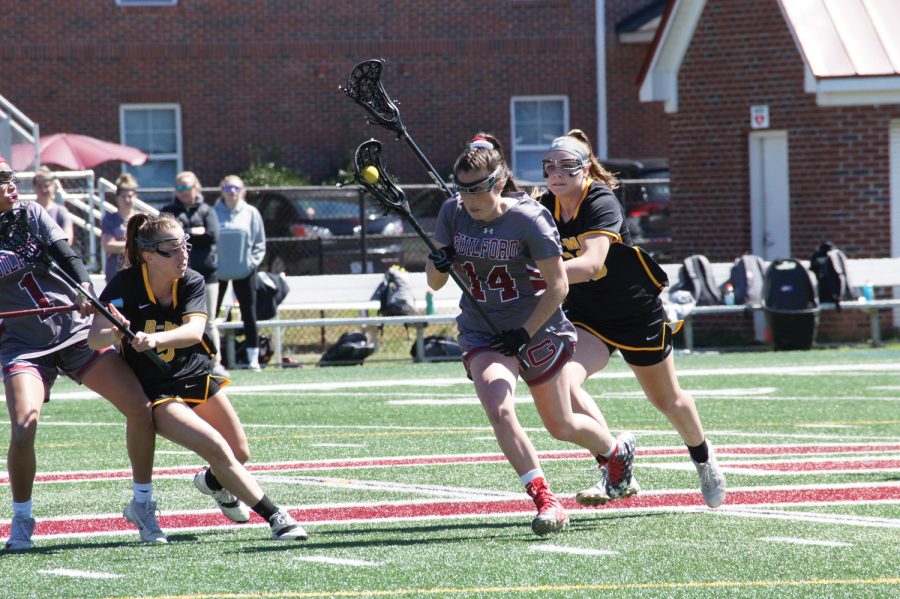“It’s not just an option for students to make a difference,” said human rights lawyer Amal Clooney. “You are the generation that’s going to be leading all of these issues. If you can just help one or 10 or more people, you are doing something good.”
Clooney spoke at the 20th annual Bryan Series at the Greensboro Coliseum in Greensboro, North Carolina. The event started with a Q&A session with Clooney for students and faculty. Following the Q&A session, alumna Heather Scavone ’03 led a discussion about “The Refugee Protection System: A Primer on International and Domestic Protection Laws.”
Clooney opened her speech with comments about Guilford College’s involvement with human rights and social justice.
“I have much to be impressed by,” said Clooney. “I read about the emphasis on ethics and teaching about the commitment to diversity on campus. I have read about the College’s openness to welcoming refugees here on campus.”
Clooney then explained her human rights work as a lawyer.
“As a lawyer, I am used to arguing cases, and today I would like to make the case for justice, more specifically why trials are important as a response to international crimes,” said Clooney.
Clooney talked about her many different experiences as a human rights lawyer and activist. She talked about a case involving the Islamic State group and a young woman named Nadia Murad, one of a group of Yazidi women who were captured and used as sex slaves.
“Nadia was raped and held by 12 different IS militants,” said Clooney. “She was forced to pray. She was forced to dress up in preparation for rape. And after she tried to escape from one house in which she was held, she was punished by being brutally abused over one night by a group of men, two at a time, until she fell unconscious. She has shown me the scars from cigarette burns and the beatings.”
Clooney represented Murad on behalf of many Yazidi women who were victims of sexual violence. The Yazidi people are a Kurdish speaking group who practice an ancient religion, they are located throughout Syria, Iraq and Turkey.
She warned Murad that the road to justice can be a very long one.
Guilford’s views on social justice are similar to Clooney’s. Associate Professor of Justice & Policy Studies William Pizio connected the work done at Guilford to the work Clooney does.
“I feel that social justice fully embodies human rights, so the work we do here at GC couldn’t be any closer to human rights work,” Pizio said. “In my opinion, this is the type of work we do every day here at Guilford, inside and outside of the classroom.”
People submitted questions in advance to Ty Buckner, the associate vice president of the Bryan Series. He read a question that asked Clooney about how she started her career as a human rights lawyer.
“There wasn’t one big event,” Clooney said. “I was always interested in people, traveling and learning about different cultures, and I was interested in the law and the process of trials as a way to uncover the truth. I watched courtroom dramas on TV and thought ‘wow, this looks exciting.’”
In response to another submitted question, Clooney spoke about the people who influenced her in her career choice.
“Definitely growing up my mother was a good role model because she was a strong and independent working woman,” said Clooney. “She is a journalist and worked hard and got a lot out of her career, and I felt that it allowed her to be an independent (woman) but at the same time didn’t ever lose her femininity and was able to have a great balance.”
One Guilford student felt Clooney served as a role model for her generation.
“Amal Clooney was spectacular,” said sophomore Malaika Geffrard.
“She is a divine woman doing magnificent work – inspirational. She brought to light the genocide taking place in the Middle East by the hands of ISIS. Also, it was nice to hear her perspective as a woman in that field who doesn’t do talks like this on a regular basis. I found her speech enlightening, and it has now pushed me to do more because of the lack of knowledge I had prior to hearing her speak about this issues and how international law works.”
Clooney concluded her presentation on a positive note.
“I feel hopeful,” said Clooney. “There are fewer people dying from war. There are fewer people dying from diseases. Our life expectancy is higher than ever. We’ve got fewer people in poverty than we have before. We have more women and minorities in positions of power and more people connected than ever before. All of these things are reasons and signs to be optimistic.”









